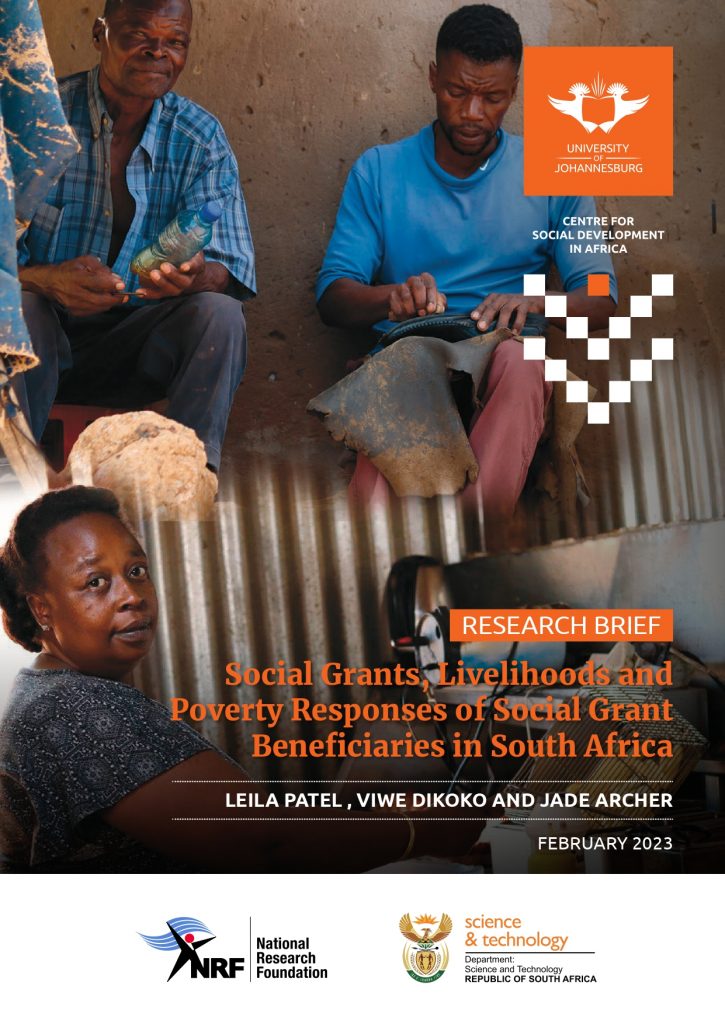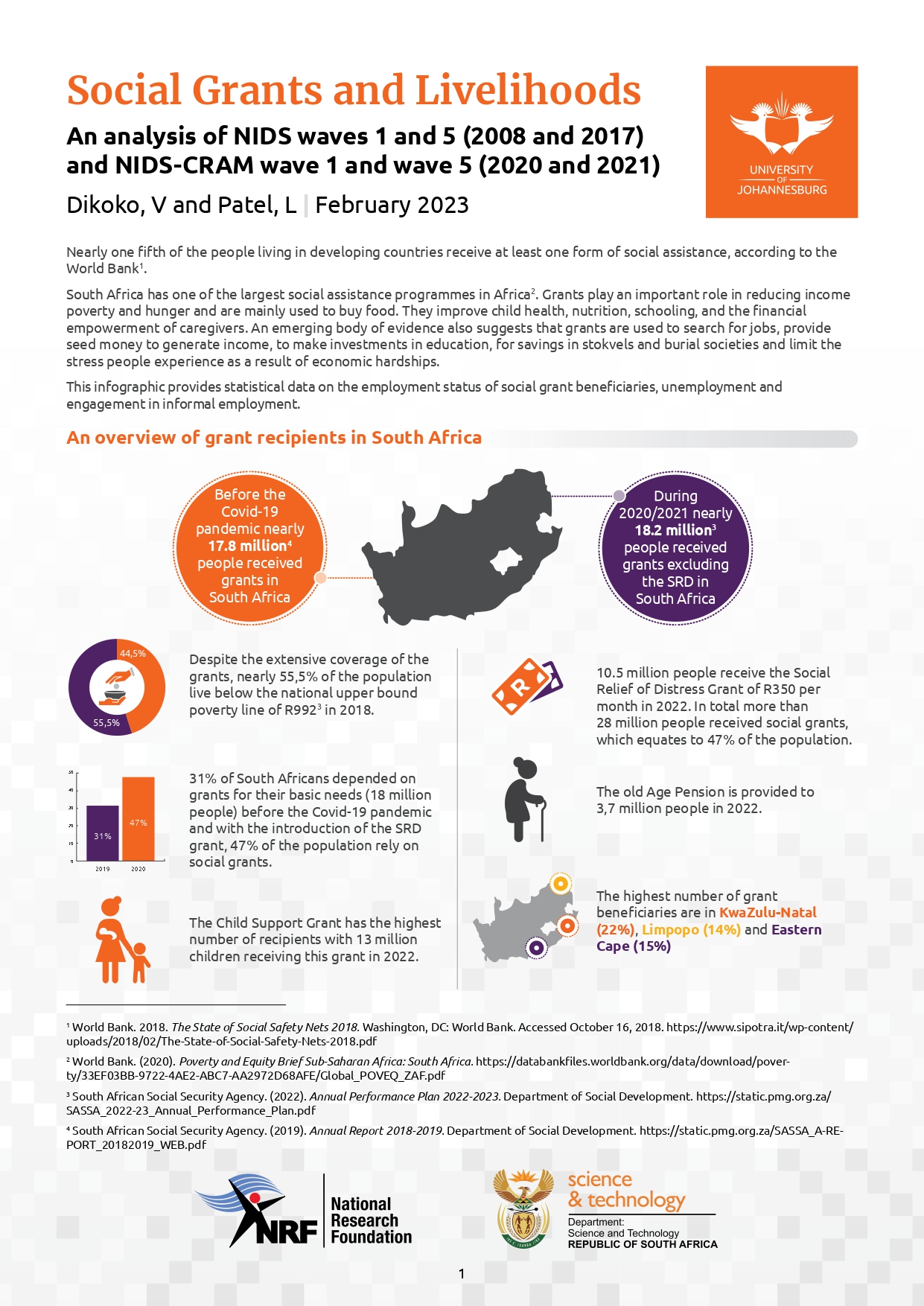Social Grants, Livelihoods and Poverty Responses of Social Grant Beneficiaries in South Africa
Globally, a fifth of the people in developing countries receive at least one form of social assistance (World Bank 2018). South Africa fares well as it has one of Africa’s largest cash transfer programmes. Roughly one-third of the population are beneficiaries of social grants for older persons, people with disabilities and children. The expansive COVID-19 Social Relief of Distress (SRD) grant introduced for unemployed adults in 2020 in response to the COVID-19 pandemic means that just under half of the population now receive social assistance through an unconditional cash transfer. Social grants positively affect poverty and inequality (Köhler & Bhorat, 2021; The World Bank, 2018) and key social development outcomes (Patel, 2021). Although grant monies are spent largely on food, there is growing evidence that social grants are also used to make productive investments in livelihood activities (Granlund & Hochfeld, 2020; Neves et al., 2009; Nnaeme et al., 2020). Köhler and Bhorat (2021) found that the SRD increased the probability of job search among beneficiaries by 25 percentage points. Despite these findings, there is still limited evidence of the nature and scope of informal livelihood activities of grant beneficiaries and how government and other social partners may be able to support people’s agency and strengthen their livelihood strategies in a context of extraordinarily high rates of unemployment (32.1 per cent in quarter four of 2023 (StatsSA, 2023).
This project aims to investigate the role of social grants in supporting livelihood strategies among beneficiaries in South Africa. It addresses the need to understand the impact of social assistance programmes on poverty alleviation and job search behaviour, particularly in the context of high unemployment rates. By analysing data from the National Income Dynamics Study (NIDS) and NIDS-CRAM, supplemented by qualitative research, the project seeks to identify opportunities to strengthen livelihoods and enhance agency among grant recipients.
The project focuses on assessing the effectiveness of social grants, including the COVID-19 Social Relief of Distress (SRD) grant, in addressing poverty and inequality. It examines the utilisation of grants by beneficiaries for livelihood activities and explores avenues to support their economic empowerment. The study is national in scope and involves collaboration with academic researchers, policymakers, and community organisations.
The project involves data analysis of NIDS and NIDS-CRAM datasets to understand the economic activities of grant beneficiaries. Qualitative research conducted by students under the supervision of Prof Leila Patel provides insights into the ways grants are utilised to develop additional livelihood strategies. The project also includes dissemination activities such as research briefs and infographics to communicate findings to stakeholders.
The project deepens understanding of the informal livelihood activities of grant beneficiaries and strategies to support their economic empowerment. By highlighting the positive effects of social grants on poverty alleviation and job search behaviour, the project aims to inform policy interventions to enhance livelihood opportunities for vulnerable populations.
The resulting research brief highlights the significant role of social grants in South Africa, particularly in addressing poverty and inequality. It underscores the positive impact of cash transfer programmes on key social development outcomes, including poverty alleviation and job search behaviour among beneficiaries. However, despite these positive effects, there remains a need to understand the nature and scope of informal livelihood activities among grant beneficiaries and how best to support their agency and strengthen their livelihood strategies, especially in the context of high unemployment rates. To accompany this research brief, the CSDA has produced an infographic which provides a high-level overview of social grants and livelihoods in South Africa, available here.


